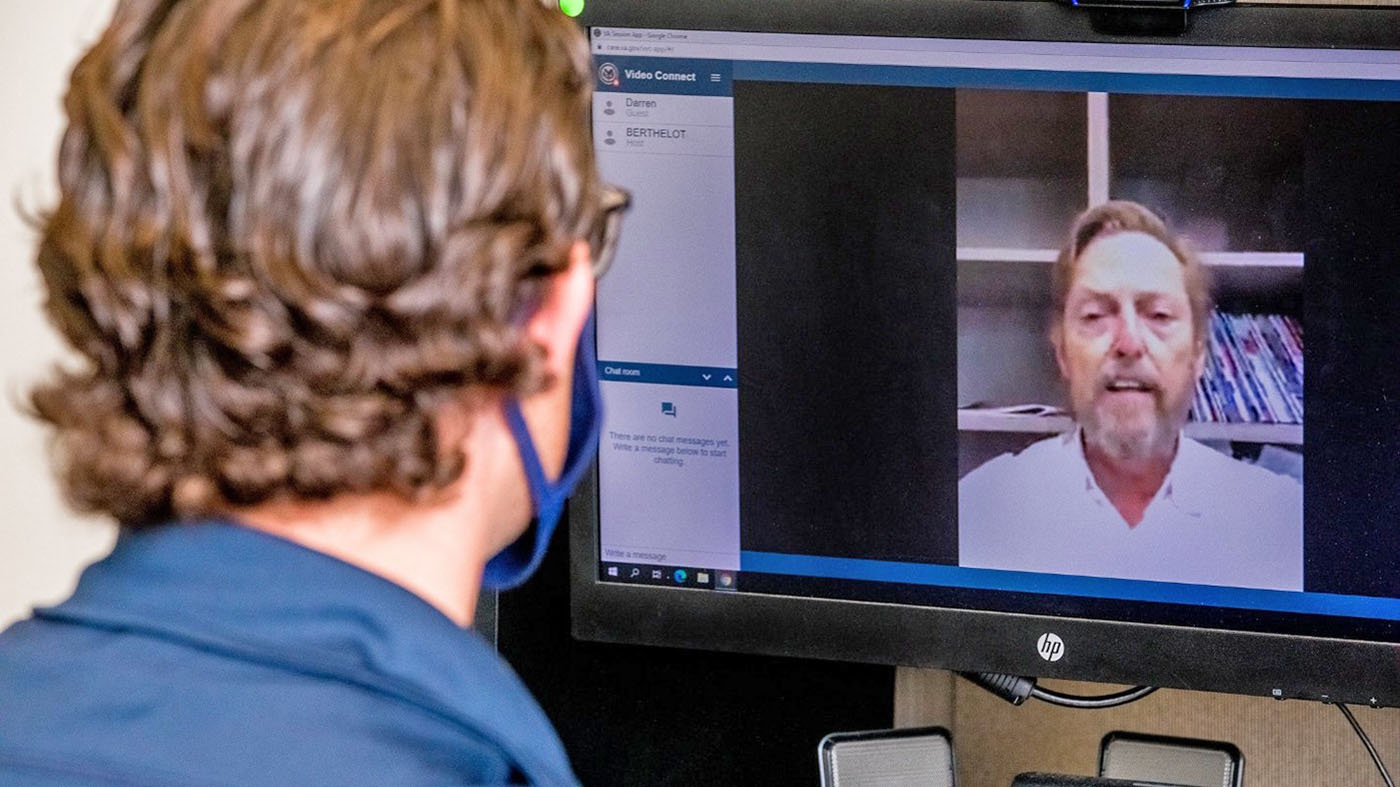Early in her medical career, Dr. Maia Carter “fell in love” with VA’s patient-focused, integrated care system.
Since 2021, Carter has led the integration of virtual care into the primary care system, working to streamline the experience of virtual care for patients. Her work directly supports VA’s health care priority to connect Veterans to the soonest and best care.
“I’ve always been mission oriented and wanted to work to help vulnerable populations. At VA, I found a patient population I enjoyed treating and a medical approach that is holistic and team-based, and allows providers to focus on patient care,” she said. “During the pandemic, we saw what virtual care really could do. In addition to being a tool to reach Veterans and maintain social distance, we were able to reach patients who would have otherwise not seen a provider because they lived far away or faced barriers to in-person care.”
Developing tools to expand data while maintaining patient privacy
Carter emphasized that virtual care will not replace in-person care for patients who want it.
“Virtual care allows patients to connect with their health care team conveniently. We are working hard to expand the strong practice of mimicking the in-person clinic visit while developing tools to expand objective data like virtual vital signs while maintaining encryption and patient privacy,” she said.
Carter is hopeful that, one day, virtual care will be routinely offered so Veterans can reach their primary care team wherever they are—from their home to their vacation destination or work. “Our efforts for virtual care expansion enable our health care teams to leverage technology to take exceptional care of our Veterans,” she explained.
Telehealth care to over 2.4 million Veterans
The expansion of virtual care is already providing substantial impacts for Veterans across the country. In fiscal year 2023, VA delivered more telehealth care to more Veterans than in any previous year. VA provided telehealth care to over 2.4 million Veterans, representing about 40% of Veterans served in VA.
These Veterans received part of their VA health care through more than 11.6 million telehealth appointments, including over 9.4 million VA Video Connect appointments to Veterans in their homes or at other non-VA locations.
Read more about how virtual care is augmenting patient care at VA in the Clinical Services 2023 Annual Report. Also, check out the video blog launched by the Office of Primary Care’s Virtual Integration Team and hosted by Carter: Let’s Talk Virtual Care.
Find out more about primary care at VA.
Topics in this story
Link Disclaimer
This page includes links to other websites outside our control and jurisdiction. VA is not responsible for the privacy practices or the content of non-VA Web sites. We encourage you to review the privacy policy or terms and conditions of those sites to fully understand what information is collected and how it is used.
More Stories
Bob Jesse Award celebrates the achievements of a VA employee and a team or department that exemplifies innovative practices within VA.
The Medical Foster Home program offers Veterans an alternative to nursing homes.
Watch the Under Secretary for Health and a panel of experts discuss VA Health Connect tele-emergency care.







Hello,
My name is Cole Samaroo and I am a veteran and owner of a small-business based in Miami-Dade County. My small business, Senior Tech Connect provides tech education and training to older adults on smartphones, devices, and with digital health literacy. I am interested in the VA’s initiative for VA Telehealth, and would like to see if my company can assist with training veterans on the platform. Thank you for your time and Semper Fidelis!
I need help paying my rental fees in an assisted living place. I am now handicapped and no way to earn at 93 years old.